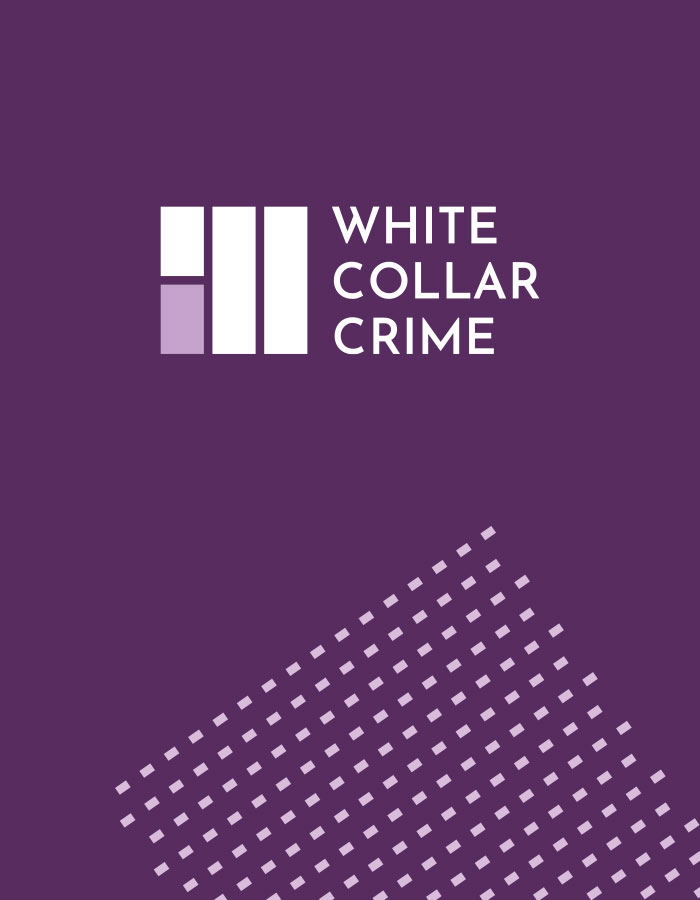Speed read: In this second awareness update, Natasha Reurts canvasses the law reform proposals currently under consultation in Australia concerning bribery and corruption, Deferred Prosecution Agreements and an Australian Modern Slavery Act.
In the first of this two part awareness update, the money laundering reforms recently put forward by the Australian government were canvassed. This final update considers the other proposals for reform in the white collar crime space.
Deferred Prosecution Agreements (‘DPA’)
The decision on whether to introduce a DPA scheme in Australia has been under consideration and consultation since March 2016; when the first public consultation paper on the option was floated. The majority of submissions from the first consultation expressed support, or conditional support, for a DPA scheme. On 31 March 2017, the Australian government released a second public consultation paper on “Improving enforcement options for serious corporate crime: a proposed model for a Deferred Prosecution Agreement Scheme in Australia” (‘DPA Consultation Paper’). [1] The proposed DPA scheme is said to represent a key focus of the Australian governments options to facilitate a more effective and efficient response to corporate crime by incentivising companies to proactively report internal misconduct.
Broadly, the mechanics of the Australia proposed DPA scheme are similar to the UK regime, however, there are some notable differences. For example, the Commonwealth Director of Public Prosecutions (‘CDPP’) approves the terms of the DPA. Final approval of a DPA is overseen by a retired judge who, following written application by the CDPP, reviews the DPA to determine whether the DPA is in the interests of justice and whether the terms are fair, reasonable, and proportionate. If so determined, the retired judge would then be required to make a written declaration including a statement of reasons for reaching the decision. The written decision would be made publicly available on the CDPP website. If the retired judge determines that the DPA is not in the interests of justice, or are its terms are not fair, reasonable, and proportionate, the parties are able to renegotiate the terms of the DPA or terminate the agreement. The DPA Consultation Paper makes specific reference to the UK-style model, where considerable judicial oversight in the DPA process exists, however owing to “constitutional considerations… particularly the separation of judicial power” the proposed model does not involve judicial oversight or approval of DPAs. [2]
Recognising that under the current Australian legal framework there is little to no incentive for corporates to self-report, DPAs are being sold as a much needed motivator with additional benefits of cost saving, resulting from forgoing a criminal trial, and more corporate oversight and control over the criminal investigation process.
Submissions for the DPA Consultation Paper closed on 1 May 2017 and the government’s next move is uncertain. However, a few issues have been raised that are worth flagging in the interim. First, the interplay between Commonwealth, State and Territory criminal offences. The DPA scheme will only apply to a publicly available list of Commonwealth corporate criminal offences and it remains to be considered what would occur if contraventions of state or territory offences were potentially engaged. Second, until more clarity on the mechanisms of the scheme and guidance is issued, it is worth questioning how the DPA scheme will interact with ongoing criminal investigations into individuals within the corporate group. This is an issue that attracted discussion in the Yates Memorandum in the United States but the DPA Consultation Paper is notably silent.
Bribery and Corruption
In 2016, Australia dropped to 13th place in the Transparency International Corruption Perception Index. In 2015, Australia ranked 10th. On 4 April 2017, the Australian government released a public consultation paper on proposed reforms to Australia’s foreign bribery regime along with an exposure draft provisions.
Currently, section 70.2, in conjunction with Part 7.6, of the Criminal Code Act 1995 gives effect to the OECD Anti-Bribery Convention. The offence applies to both individuals and corporates (by way of Division 12 of the Code) and provides that a person commits an offence if the person either provides, offers or promises a benefit to another person (or causes the benefit to be offered or given to the other person); the benefit is not legitimately due to the other person and the person offering, providing or promising the benefit (or causing the benefit to be offered, promised or given) intends to influence a foreign public official in the exercise of their official duties, in order to obtain or retain business or a business advantage that is not legitimately due to the that person. 18 years on from the introduction of the Commonwealth offence, the recently released consultation proposes substantive changes to address key challenges that the government has identified.
First, the fault element (intention) is said to be difficult to prove. As currently drafted, the prosecution is required to establish intention on behalf of the alleged offender as regards the conduct of offering, providing or promising a benefit to another and in relation to influencing the foreign public official. The difficulty in proving the double intention is made particularly challenging in circumstances where there is no written or documentary evidence to support an intention or where the person who offers, promises or provides the bribe is not the same as the person who stands to benefit.
Secondly, the government points to challenges presented by the construction of the current offence. The prosecution is required to prove that the benefit provided and advantage received was not ‘legitimately due’ and this is said to present difficulties as it is not uncommon to see the bribe disguised as a legitimate payment. Moreover, the current regime prevents a court from taken into account the value of the bribe or business advantage when considering whether the bribe or advantage was legitimately due. Although, as the government states, this was intended so that any bribe, no matter how little in value, would be captured by the offence. However, it has led to the unfortunate situation whereby courts are unable to have regard to seemingly disproportionately large payments in determining whether or not the bribe or advantage is not ‘legitimately due’.
The government also cites difficulties with obtaining international legal assistance from foreign jurisdictions in order to, for example, obtain foreign laws relating to the duties of the foreign official in question. Furthermore, the varying and inconsistent interpretations of the intended policy objectives of the offence have also led to confusion.
New draft provisions – detailed in the consultation – attempt to address these issues by way of the following proposed amendments -
- First, an extension to the definition of foreign public official to include persons who are running for office and an extension of the offence of bribery to include obtaining a personal advantage. The extension of the definition to include persons who are running for public office is noteworthy. Currently, only two OECD member countries extend bribery offences to such persons, namely Belgium and the United States. The proposal recognises that candidates for public office are vulnerable to influence and any improper influence of these persons “equally undermines good governance” [3] and as such, those who are standing or nominated for office should be subject to the same standards.
- Secondly, the creation of two new offences. The first, in near mirror terms to section 7 of the UK Bribery Act 2010, a new corporate offence of failing to prevent foreign bribery. The second, a new foreign bribery offence based on the fault element of recklessness.
- Thirdly, amendments intended to remove any inconsistency or variation in interpretations. The first of these amendments is the removal of the requirement of influencing a foreign public official in the exercise of their official duty (so as to capture instances where public officials are bribed outside of their official duties) and a clarification of the position such that it does not need to be established that the accused person had a specific business advantage or gain in mind and that the advantage can be for a third party. Second, a proposal to remove the ‘not legitimately due’ requirement for benefit and advantage and replace it with the concept of ‘improperly influence’ of the foreign public official. The newly revised offence may contain a number of factors that could be taken into account when determining ‘improper influence’.
The most controversial of the proposed amendments is the introduction of a new offence based on recklessness. The lack of support largely stems from two points. First, that the recklessness was originally rejected as an alternative fault element when the offence of bribery of a foreign official was first introduced in Australia. At the time, it was noted that intention as a fault element was consistent with the requirements and legislative objective of the OECD Anti-Bribery Convention. Secondly, both the US Congress and the UK Parliament rejected recklessness as the fault element for foreign bribery offences. There is merit in having international synergy in this area and by introducing an offence based on recklessness would create a different compliance threshold and put the Australian legal regime in this regard out of step with the UK and the US.
Modern Slavery in the Corporate Supply Chain
In mid-February 2017, the Australian Attorney General asked the Joint Standing Committee on Foreign Affairs, Defence and Trade to hold an inquiry into and report on establishing a Modern Slavery Act in Australia. The terms of reference specifically refer to the UK’s Modern Slavery Act 2015. The sub-committee’s interim report recommended that the Australian government consider introducing an Act in this regard.
On 16 August 2017, the Coalition Government announced plans to introduce legislation making it a requirement for large businesses to report annually on their actions to combat modern slavery and is currently holding a national public consultation on the matter. The three options presented by government are as follows. First, continue to do nothing to address the issue of modern slavery: a crime that has the Australian government has, since 2004, identified 350 suspected victims of and prosecuted 55 individuals for slavery offences. The second option proposed is non regulatory in nature and would focus, instead, on business awareness of the issue amongst the Australian business community. The third option, and the one favoured by the government, will see Australian business with a total annual turnover of at least A$100million to report annually on their efforts to address modern slavery in their operations and supply chains. It is said that, if proceeded with, up to 2,000 businesses operating in Australia will be required to publish such statements. The submissions on the consultation are open until 20 October 2017 and, thus far, there seems to be a wealth of support for governments third option proposal.
Conclusion
UK practitioners reviewing the consultations will be quick to pick up on the similarities between the law reform options and the UK regime with respect to these three discrete areas. Whether this is a coincidence; a case of Australia looking to the UK for legislative inspiration, or a case of adopting best practice is unknown. What is known, however, is that if all the reforms outlined in the two part awareness update, are implemented year 2017-2018 will represent the largest legislative shake up in the area of Australian white collar crime.
[1] A 2016 consultation paper sought initial views on whether a DPA Scheme should be introduced in Australia. The majority of the 17 submissions expressed support, or conditional support for a DPA scheme in Australia.
[2] Attorney-General’s Department, ‘Improving enforcement options for serious corporate crime: a proposed model for a Deferred Prosecution Agreement Scheme in Australia’ (March 2017) at 11 available at: https://www.ag.gov.au/Consultations/Documents/Deferred-prosecution-agreement-scheme/A-proposed-model-for-a-deferred-prosecution-agreement-scheme-in-australia.pdf
[3] Attorney General’s Department, iCombatting Bribery of Foreign Public Officials’ (April 2017) at 4 available at: https://www.ag.gov.au/Consultations/Documents/Foreign-bribery-offence/public-consultation-paper-amendments-to-the-foreign-bribery-offence.pdf







